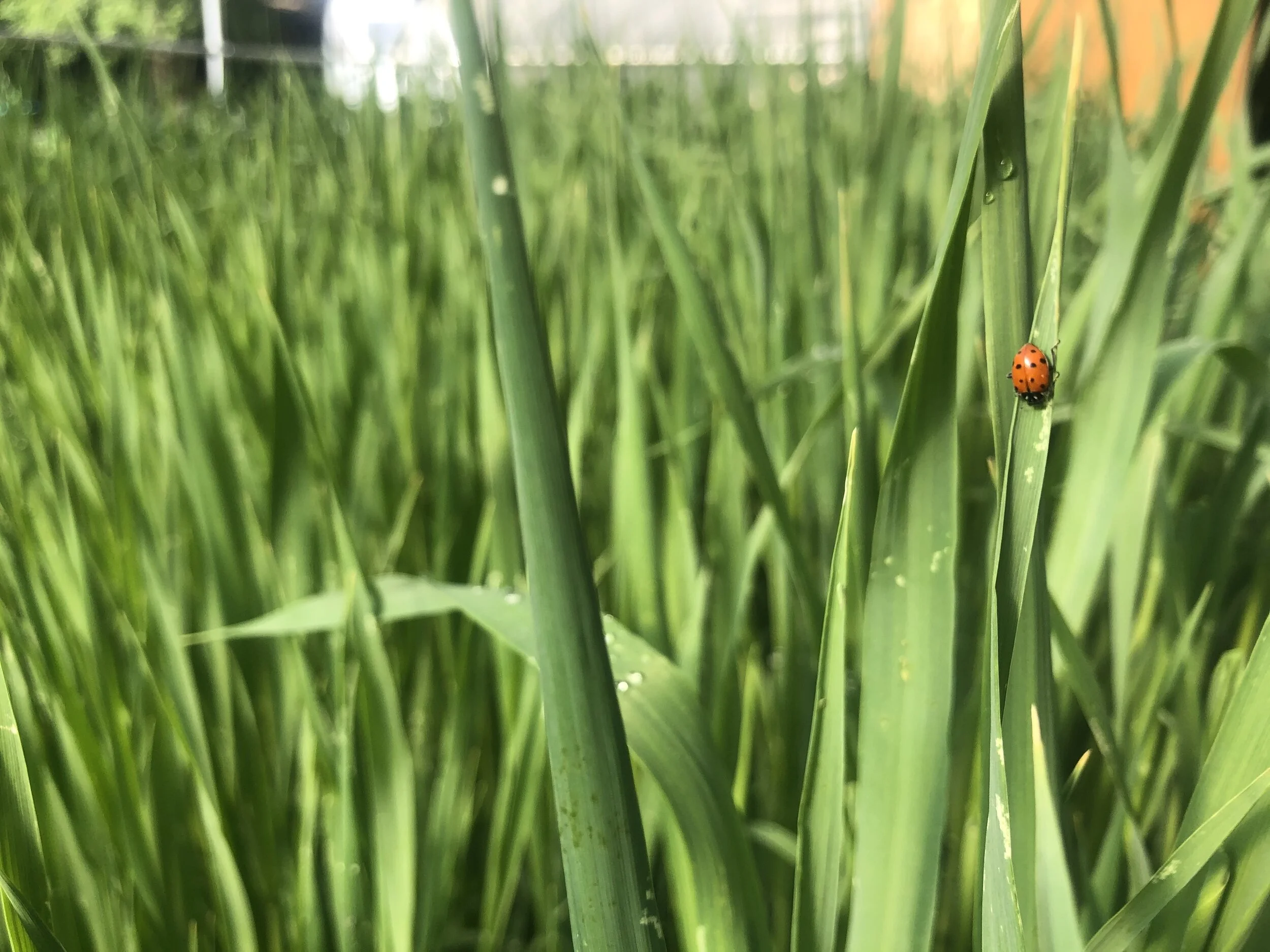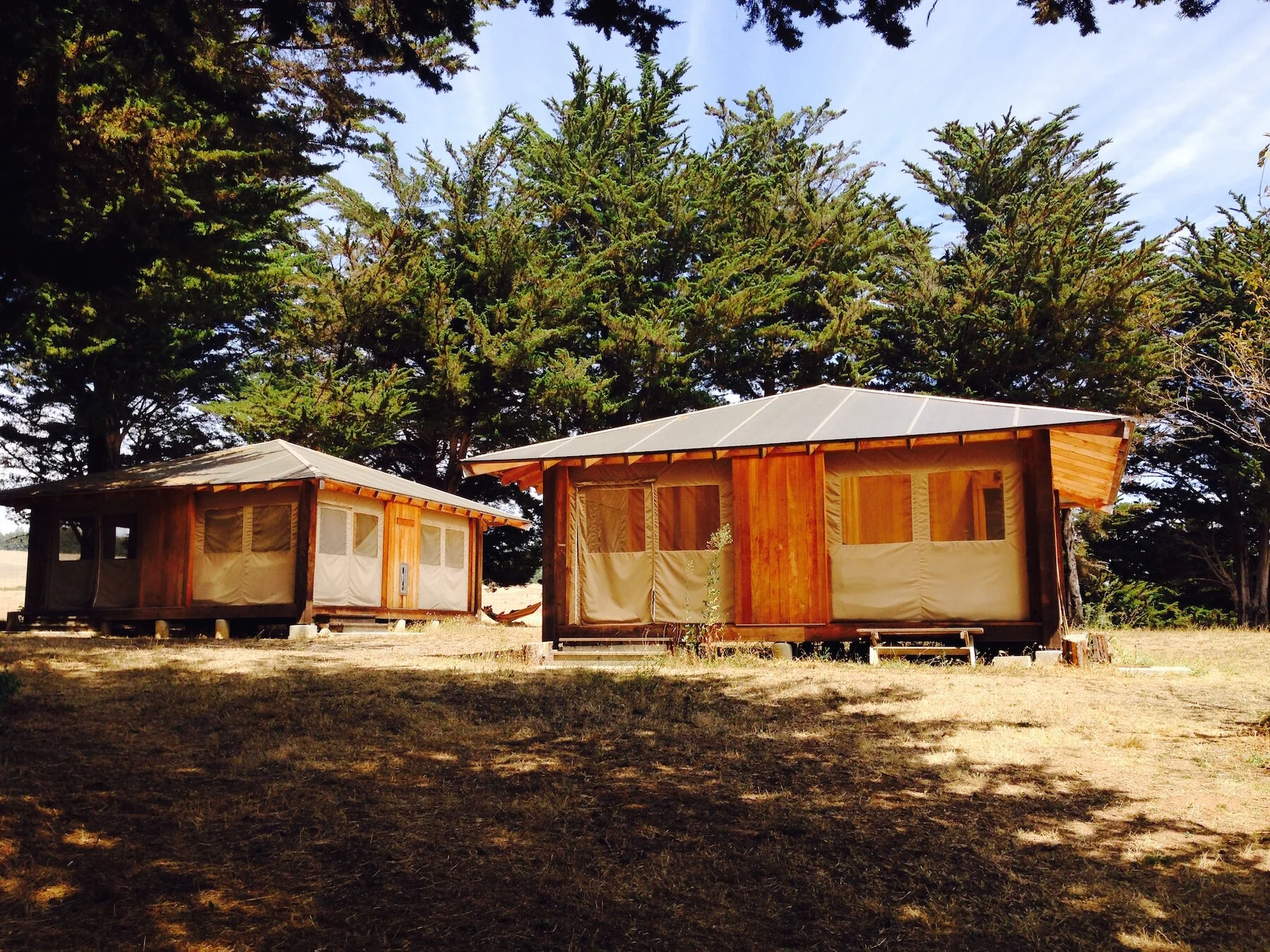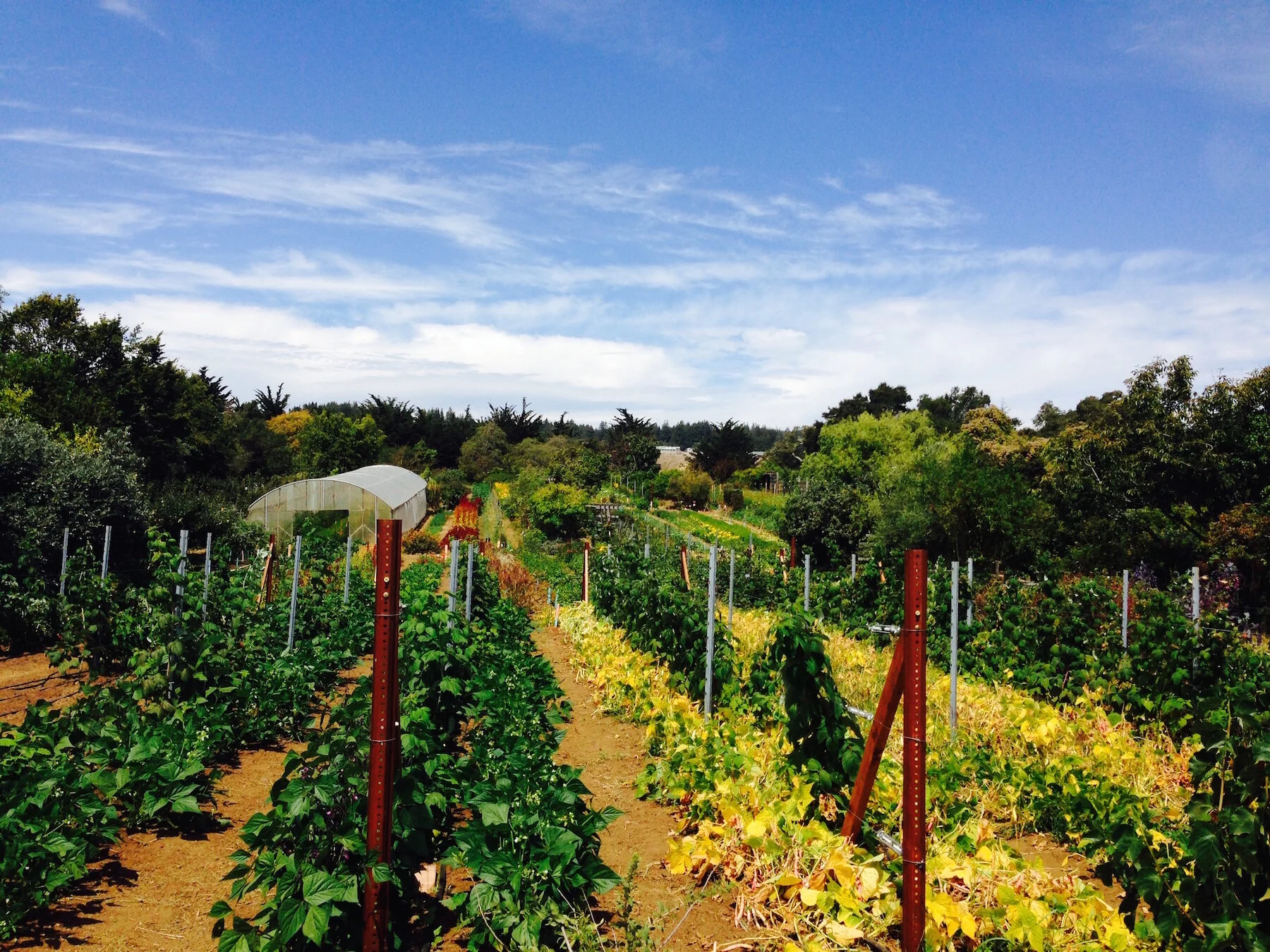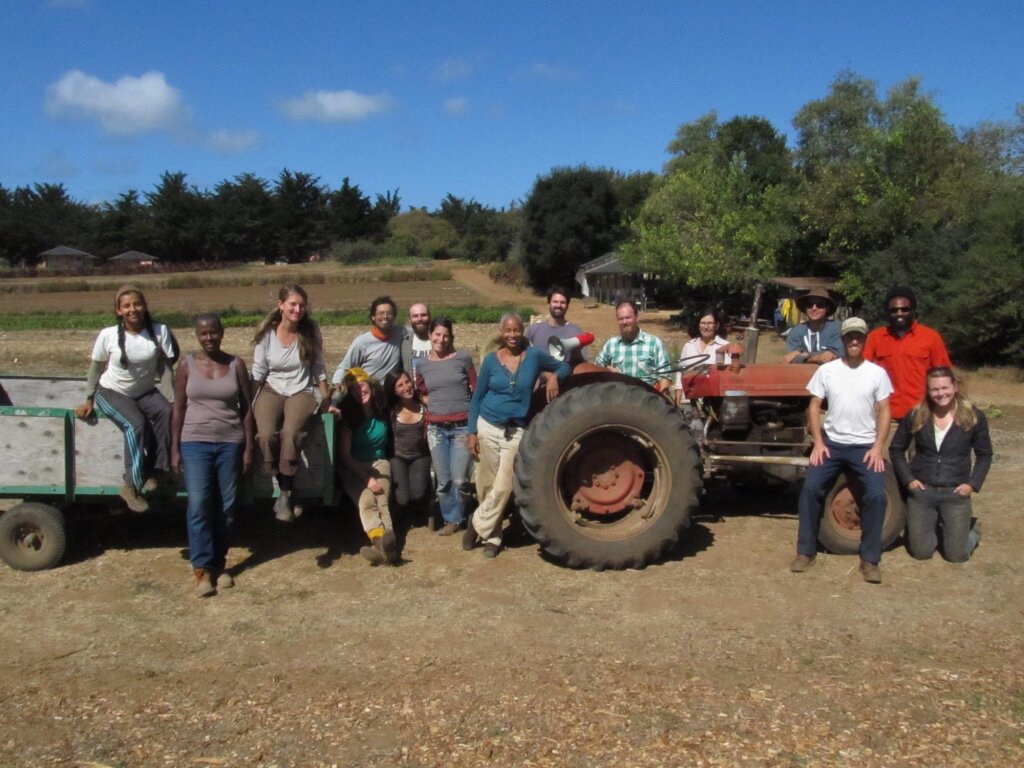The Intricate Web: Farms and people need one another
The creeping tendrils of the COVID-19 virus has touched every aspect of life all around the world. The virus reminds us each day that we are an interconnected web of humanity and nature woven into a thick cloth. To realize this is a beautiful gift despite all the losses hardships it has brought with it.
With mother nature as my business partner, I am tangled in a vast web on my farm and my goal as a natural farmer is not to disturb or destroy it. On my daily rounds in the high tunnel greenhouse, a covered growing space with no heat or cooling, I noticed aphids have taken residence on the leaves of oats (Avena sativa). I am growing this grass as a cover crop to replenish the soil and feed the microorganisms underground to grow heathy plants. Another benefit of the oats is their milky seeds can be made into a powerful nervous system restorative (something we could all use right now!) Each day I check for the flowering stalks to emerge. First discouraged by the presence of the apids, who suck energy from the plants, I felt relief when I noticed the ladybugs (technically ladybeetles) perched on the blades of grass feasting on the aphids. What a great forest of food this is to them! My problem has been solved, or at least lessened. No need to pull out the neem oil to knock back the aphids. The web is at work!
Five years ago I began my journey to become a farmer at University of California Santa Cruz (UCSC) Center for Agroecology and Sustainable Food Systems. I left my lucrative job, sold my house and put everything I owned in storage. I packed my Subaru with a few essential belongings, including my guitar, cowboy boots, typewriter and my camping gear and headed West. At the UCSC farm the apprentices slept in yurts flanked by a field of vegetables and an orchard and perched at the edge of a coastal redwood forest. At night I drifted off to sleep while the barn owls shrieked and coyotes howled. In the morning I walked out to the fields to work and learn in rows of vegetables which seemed to grow into the Pacific Ocean. Some harvest mornings we could hear sea lions barking as we bunched rainbow chard and filled wheelbarrows full of beets. The web of life was thick there, and I began to see how as a farmer I was essentially creating an ecosystem each year from bare ground, and I needed all the help I could get from various organisms to keep it healthy and in balance.
Rows of vegetables at University of Santa Cruz Farm and Garden
At the UCSC farm I immediately felt at home and steeped in daily wonder, much like I had years before exploring the natural world in the Grand Canyon. Yet the earthly abundance and diversity I experienced in my Santa Cruz farm life was in apples, blueberries, dahlia flowers and heirloom rose varieties. This fed me on a deep level to be fostering these wonders from the ground, sharing them with our fellow apprentices, and offering them to people at our market stand. But there was another element woven into the complex cloth of this farm ecosystem—the other farm apprentices. Together forty would-be farmers from vastly different ages, cultures, orientations and life experiences grew together out of that beautiful soil fertilized by nearly fifty years of apprentices who came before us.
The 2015 Center for Agroecology and Sustainable Food Systems apprentice crew
Today I am settling into my first full days at Wild Heart Farm, on my new land in Rimrock, where I am dreaming, building, planting, and creating something from all the seeds I planted, cuttings I propagated, and trees I pruned at the UCSC farm. The varieties of flowers I love, the ideas, techniques, the soil preparation and reverence I feel and songs I sing were planted in me from that experience on the UCSC farm and my wild, native plant friends from the Grand Canyon. The missing piece on my farm during COVID-19 has been people, since we have all been isolated and sheltering in our place.
It is daunting to be a solo farmer—even with just a little over an acre to care for its easy to become overwhelmed, to get discouraged, tired, unfocused, down on yourself, to become unable to see the magic. Although I have a supportive partner to share this with, I’m missing community. Farms need people woven into their fabric, to gather around them and encircle them with support, attention and energy. Farms need people nestled within them and throughout all aspects to appreciate their aliveness. People need to have their bodies nourished by farms and to celebrate and witness and love them; not just when they present beautiful farm stands at market, but throughout the awkward, messy stages of growth and during the failures. People need farms to remind them they too are of the earth. They too were a seed that grew and was fed and nurtured. Growing farms and humans takes thought, expense, sweat, tears, water, resources from deep within. People need to experience farms to touch the intricate web of everything that happens behind the fence, during the night, and beneath the ground so they understand the extent of the cloth they are woven into when they eat a salad, bite into an apple or hold a bouquet of fresh flowers.



